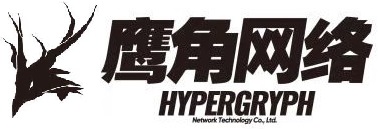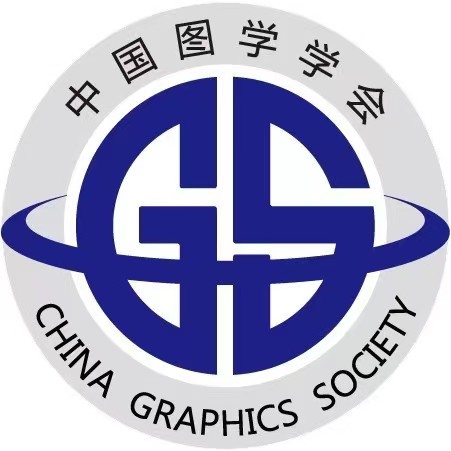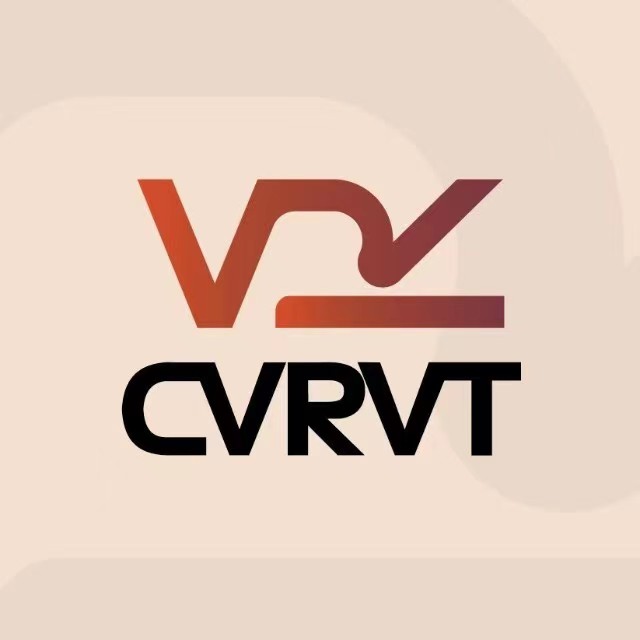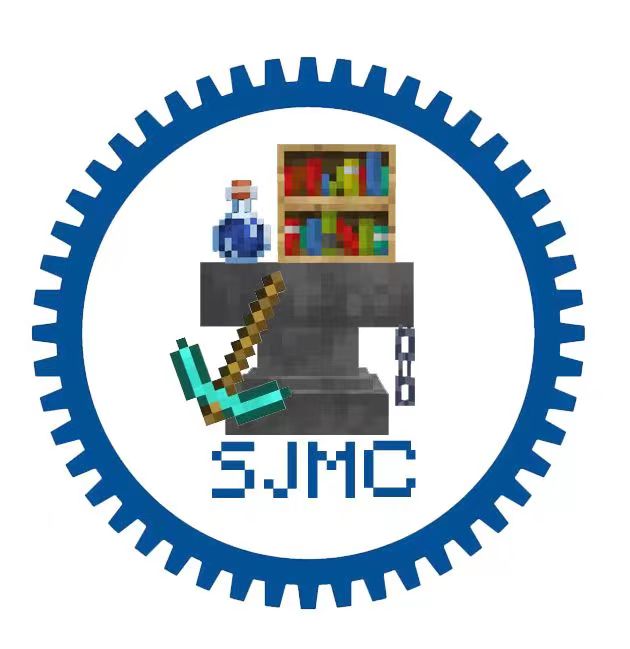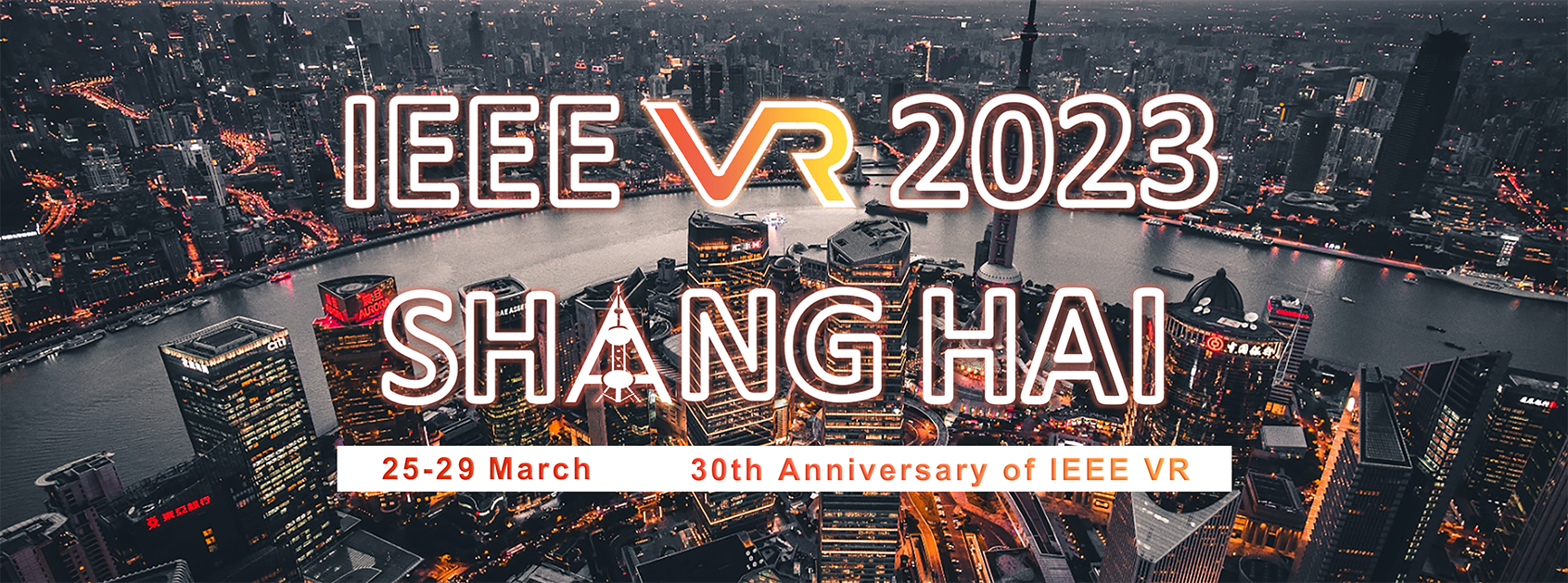
Workshops
Workshop: Multi-modal Affective and Social Behavior Analysis and Synthesis in Extended Reality (MASSXR)
Principal Organiser: Zerrin Yumak
Website: https://sites.google.com/view/massxrworkshop2023
The objective of this workshop on Multi-modal Affective and Social Behavior Analysis and Synthesis in Extended Reality is to bring together researchers and practitioners working in the field of social and affective computing with the ones on 3D computer vision and computer graphics/animation and discuss the current state and future directions, opportunities, and challenges. The workshop aims to establish a new platform for the development of immersive embodied intelligence at the intersection of Artificial intelligence (AI) and Extended Reality (XR). We expect that the workshop will provide an opportunity for researchers to develop new techniques and will lead to new collaboration among the participants.
Towards Multimodal VR Trainer of Voice Emission and Public Speaking-Work-in-Progress
Magdalena Igras-Cybulska: AGH UST; Daniela Hekiert: SWPS University of Social Sciences and Humanities; Marcin Witkowski: AGH University of Science and Technology; Artur Cybulski: AGH University of Science and Technology; Jan Jasiński: AGH University of Science and Technology; Izabela Augustyn: AGH University of Science and Technology; Konrad Nakonieczny: AGH University of Science and Technology; Daria Joanna Hemmerling: AGH University of Science and Technology; Julia Juros: AGH University of Science and Technology; Magdalena Kaczorowska: AGH University of Science and Technology; Marek Warzeszka: AGH University of Science and Technology; Rafał Salamon: AGH University of Science and Technology; Paulina Słomka: AGH University of Science and Technology; Aleksandra Szumiec: AGH University of Science and Technology; Katarzyna Błaszczyńska: The Stanisław Wyspiański Teatr Śląski in Katowice; Bartłomiej Błaszczyński: Kieślowski Film School at the University of Silesia, National Academy of Theatre Arts in Kraków; Stanisław Kacprzak: AGH University of Science and Technology; Ewa Migaczewska: AGH University of Science and Technology; Tomasz Skrzek: AGH University of Science and Technology; Filip Malawski: AGH University of Science and Technology; Kinga Kornacka: AGH University of Science and Technology; Slawomir Konrad Tadeja: University of Cambridge; Radosław Sterna: Jagiellonian University; Marek Makowiec: Krakow University of Economics; Magdalena Majdak: Polish Academy of Sciences
Augmented Reality and Affective Computing for Nonverbal Interaction Support of the Visually Impaired
Deniz Iren: Open Universiteit; Krist Shingjergji: Open Universiteit; Felix Bottger: Open Universiteit; Corrie Urlings: Open Universiteit; Jelle Meindert Osinga: Eindhoven University of Technology; Sjoerd van de Goor: Eindhoven University of Technology; Damian Bustowski: Eindhoven University of Technology; Juliette Marie Passariello-Jansen: Eindhoven University of Technology; Roland Klemke: Open Universiteit
Workshop: First Workshop on VR for Exergaming (VR4Exergame)
Principal Organiser: Bhawna Shiwani
Website: https://altecresearch.com/vr4exergame/
VR exergames have potential to enable a broad spectrum of users to participate in fitness and rehabilitation activities in immersive social environments. Yet, consumer grade VR systems show only limited ability to realize the adoption of VR exergaming at such scale. Key challenges to enable VR as an engaging, interactive and social alternative to existing practices include – therapeutic benefits to fitness and rehabilitation activities; human factors including the ability to simulate real-world scenarios, long term usage comfort among others; and technical capabilities such as simplified system setup, low multi-user latency, and realistic whole-body immersion. This full-day workshop will bring researchers and industry practitioners together to discuss these new emerging research challenges and technologies. It will consist of keynote speakers, juried paper presentations, and a panel discussion. We invite authors to submit 6-page (plus 1-page for references) research or position papers.
Effects of Walking Together in a Co-Located Virtual Reality Game
Bjørn Christian Winther: Aalborg University; Mikkel Krarup: Aalborg University; Patrick Andersen: Aalborg University; Ungyeol Lee: Hongik University; Niels Christian Nilsson: Aalborg University Copenhagen
Terrain Synthesis for Treadmill Exergaming in Virtual Reality
Wanwan Li: University of South Florida
A Virtual Reality Exergame: Clinician-Guided Breathing and Relaxation for Children with Muscular Dystrophy
Dalya Al-Mfarej: Delsys and Altec, Inc.; Jennifer M. Vojtech: Delsys and Altec, Inc.; Serge H. Roy: Delsys and Altec, Inc.; Elise Townsend: MGH Institute of Health Professions; Julie J. Keysor: MGH Institute of Health Professions; Nancy Kuntz: Lurie Children’s Hospital of Chicago; Vamshi Rao: Lurie Children’s Hospital of Chicago; Joshua C Kline: Delsys and Altec, Inc.; Bhawna Shiwani: Delsys and Altec, Inc.
Workshop: KELVAR Workshop: K-12+ Embodied Learning through Virtual and Augmented Reality
Principal Organiser: Steven Cutchin
Website: https://sites.google.com/site/vrkelvar/
In this workshop we aim to bring together educators, developers and researchers who are interested in creating and deploying XR technologies for the educational contexts of the future.
Children’s evaluation of a virtual reality boating safety education resource
Erica Southgate: University of Newcastle
An Immersive Geometry Environment for Mathematics Education: Taxonomy and Preliminary Evaluation
Lui Thomsen: Aalborg University Copenhagen; Niels Christian Nilsson: Aalborg University Copenhagen; Rolf Nordahl: Aalborg University; Kevin Baars Støvelbæk: Aalborg University Copenhagen; Christoffer Bendig Mundbjerg-Sunne: Aalborg University Copenhagen
An Exploratory Study on Learning in 3D Multi-user Virtual Environments
Ling Zhang: Shaanxi Normal University; Yingmei Guo: Shaanxi Normal University; qiaodi ma: Shaanxi Normal University; Yun Zhou: Shaanxi Normal University
Interactive Cues on Geometry Learning in a Virtual Reality Environment for K-12 Education
Qian Chen: Shaanxi Normal University; Ling Zhang: Shaanxi Normal University; Bingyu Dong: Shaanxi Normal University; Yun Zhou: Shaanxi Normal University
Case study: Strategy Business Administration Interactive XR Learning
Jonathan Giron: Reichman University; Ayala Berenson: Reichman University; Niron Hashai: Reichman University
Engaging Novice XR Users to XR for STEM Education: Enhancing User Comfort, Health and Safety in VR and AR
Aleshia Hayes: University of North Texas
Ohm VR: solving electronics escape room challenges on the roadmap towards gamified STEAM education
Piotr Zamojski: AGH University of Science and Technology; Norbert Barczyk: AGH University of Science and Technology; Marek Frankowski: AGH University of Science and Technology; Artur Cybulski: AGH University of Science and Technology; Konrad Nakonieczny: AGH University of Science and Technology; Marek Makowiec: Krakow University of Economics; Magdalena Igras-Cybulska: AGH UST
Importance of Democratization for Virtual Reality in Education
Katrien Jacobs: Simon Fraser University
Is Immersive Virtual Reality in K-12 Education Ready for Primetime? Challenges, Possibilities, and Considerations
Christos Gkoumas: University of Cyprus; Lisa Izzouzi: University College London
Workshop: 4th Annual Workshop on 3D Content Creation for Simulated Training in eXtended Reality (TrainingXR)
Principal Organiser: Lap Fai (Craig) Yu
Website: https://sites.google.com/view/trainingxrieeevr2023/trainingxr
This workshop discusses and articulates research visions on using the latest extended reality (VR/AR/MR) technologies for education and training purposes, and on creating immersive 3D virtual content for delivering effective and personalized training experiences. This workshop will gather researchers and practitioners in a variety of computer disciplines related to XR training and content creation. This workshop will accept research papers on these topics. We will also invite renowned speakers from the research community and the industry to give talks related to XR-based training, to inspire the field to further explore this promising direction.
Adaptive Immersive VR Training Based on Performance and Self-Efficacy
Lasse Frandsen Lui: Aarhus University; Unnikrishnan Radhakrishnan: Aarhus University; Konstantinos Koumaditis: AU; Francesco Chinello: Aarhus University
SEPSIS COLLAB: A Virtual Reality Training Simulation For Sepsis Treatment
Ayesha Williams-Bhatti: Birmingham City University
Use of Eye Behavior with Visual Distraction for Attention Training in VR
Yi (Joy) Li: Kennesaw State University; Pranathi Ayyalaraju Ramalakshmi: Kennesaw State University ; Chao Mei: Meta; Sungchul Jung: Kennesaw State University
On the Effectiveness of Virtual Eye-Hand Coordination Training with Head Mounted Displays
Moaaz Hudhud Mughrabi: Kadir Has University; Furkan Kaya: Kadir Has University; Anil Ufuk Batmaz: Concordia University; Aliza Aliza: Kadir Has University; Wolfgang Stuerzlinger: Simon Fraser University; Baris Borazan: Kadir Has University; Emir Tonyali: Kadir Has University; Mine Sarac: Kadir Has University
Designing an Empathy Training for Depression Prevention Using Virtual Reality and a Preliminary Study
Yi (Joy) Li: Kennesaw State University; Amy R Huang: University of Georgia ; Bhavya sri sanku: kennesaw state university; Selena He: Kennesaw State University
Creating Informal Learning and First Responder Training XR Experiences with the ImmersiveDeck
Christian Schönauer: TU Wien; Maria Roussou: National and Kapodistrian University of Athens; Julien Rüggeberg: Illusion Walk KG; Jim Rüggeberg: Illusion Walk KG; Lucas Katsikaris: Bolt Virtual; Sakis Rogkas: Bolt Virtual; Dimitris Christopoulos: Foundation of the Hellenic World; Hannes Kaufmann: TU Wien
Does Adding Physical Realism to Virtual Reality Training Reduce Time Compression?
Kadir Baturalp Lofca: University of North Carolina at Greensboro; Jason Jerald: NextGen Interactions; Dalton B Costa: UNCG; Regis Kopper: University of North Carolina at Greensboro
Workshop: Workshop on Emerging Novel Prototyping Techniques for XR (ENPT XR)
Principal Organiser: Assem Kroma
Website: http://www.xrprototyping.com
This full-day workshop will bring together researchers and industry practitioners from different backgrounds to discuss the future of prototyping for VR, AR, and 3D User Interfaces, and help chart a course for the future of XR prototyping techniques.
Bodystorming for VR in the dark: Using glow sticks for ideation and rapid prototyping
Ahmet Börütecene: Linköping University
Visor-less XR in museums. A Content Management System for Immersive Installations
Miriam Saviano: Sapienza Università di Roma; Viktor Malakuczi: Sapienza Università di Roma; Lorenzo Imbesi: Sapienza Università di Roma
Designing Prototype XRI Workspaces with Mixed Reality and IoT Devices for Immersive Adaptive Environments
Jigyasa Agarwal: OCAD University; Alexis Morris: OCAD University
Workshop: 2nd International Workshop on eXtended Reality for Industrial and Occupational Support (XRIOS)
Principal Organiser: Kangsoo Kim
Website: https://sites.google.com/view/xrios
This workshop——eXtended Reality for Industrial and Occupational Supports (XRIOS)-aims to identify the current state of XR research and the gaps in the scope of human factors and ergonomics, mainly related to the industrial and occupational tasks, and discuss potential future research directions. XRIOS will build a community that bridges XR developers, human factors and ergonomics researchers interested in industrial and occupational applications.
Towards Asynchronous Mixed Reality Remote Guidance supported by a Virtual Assistant: Proposal of a Conceptual Model
Bernardo Marques: Universidade de Aveiro; Samuel Silva: Universidade de Aveiro; António Teixeira: IEETA / DETI, University of Aveiro; João Alves: Universidade de Aveiro; Paulo Dias: University of Aveiro; Beatriz Sousa Santos: University of Aveiro
Mixed Reality Human Teleoperation
David Black: University of British Columbia; Tim Salcudean: University of British Columbia
An Overview of the 2nd International Workshop on eXtended Reality for Industrial and Occupational Supports (XRIOS)
Kangsoo Kim: University of Calgary; Bernardo Marques: Universidade de Aveiro; Heejin Jeong: Arizona State University; Samuel Silva: Universidade de Aveiro; Isaac Cho: Utah State University; Carlos Ferreira: Universidade de Aveiro; Hyungil Kim: Oakland University; Paulo Dias: University of Aveiro; Myounghoon Jeon: Virginia Tech; Beatriz Sousa Santos: University of Aveiro
Towards Augmented Reality Guiding Systems: An Engineering Design of an Immersive System for Complex 3D Printing Repair Process
Luca O. Solari Bozzi: ETH Zurich; Kerr Samson: University of Cambridge; Slawomir Konrad Tadeja: University of Cambridge; Sebastian Pattinson: University of Cambridge; Thomas Bohné: University of Cambridge
Enhancing Culinary Training with Spatial Augmented Reality: A User Study Comparing sAR Kitchen and Video Tutorials
Yalda Ghasemi: University of Illinois at Chicago; Allison Bayro: Arizona State University; Justin MacDonald: University of Illinois at Chicago; Heejin Jeong: Arizona State University; Joel Reynolds: DePaul University; Chang S. Nam: North Carolina State University
Push the Industrial Complexity Away': A Vision for using Data Collection and Mixed Reality as an Analysis Tool
Bernardo Marques: Universidade de Aveiro; Liliana Filipa Vale Costa: Universidade de Aveiro, DigiMedia; Pedro Reisinho: University of Aveiro; Cátia Silva: University of Aveiro; Samuel Silva: Universidade de Aveiro; Nelson Zagalo: University of Aveiro
eXtended Reality Vest: A New Approach to Demonstration-Based Learning
Allison Bayro: Arizona State University; Bryan Havens: University of Illinois at Chicago; Heejin Jeong: Arizona State University
Table2Table: Merging “Similar” Workspaces and Supporting Adaptive Telepresence Demonstration Guidance
Heeyoon Jeong: Korea University; Gerard Jounghyun Kim: Korea University
Telexistence-Based Remote Maintenance for Marine Engineers
Damien Mazeas: Cranfield University; John Ahmet Erkoyuncu: Cranfield University; Frédéric Noël: Grenoble-INP
Real-Time Data Monitoring of an Industry 4.0 Assembly Line using Pervasive Augmented Reality: First Impressions
Rafael Maio: University of Aveiro; Bernardo Marques: Universidade de Aveiro; André Santos: University of Aveiro; Pedro Ramalho: Bosch Thermotechnology Aveiro; Duarte Almeida: Bosch Termotecnologia S.A; Paulo Dias: University of Aveiro; Beatriz Sousa Santos: University of Aveiro
AnnHoloTator: A Mixed Reality Collaborative Platform for Manufacturing Work Instruction Interaction
Lorenzo Stacchio: University of Bologna; Vincenzo Armandi: University of Bologna; Lorenzo Donatiello: University of Bologna; Gustavo Marfia: University of Bologna
AR in remote maintenance: Empirical user research with dyads
Filippo Talami: Fraunhofer Portugal AICOS; Ana Correia de Barros: Fraunhofer Portugal AICOS; Paulo Torres: Fraunhofer Portugal AICOS; Ana Vasconcelos: Fraunhofer Portugal AICOS; Gonçalo Santos: Glartek
Augmented Reality for Warehouse: Aid System for Foreign Workers
Ahmad Albawaneh: Oakland University; Venkata Agnihothram: Oakland University; Jiang Wu: Oakland University; Goutam Singla: Oakland University; Hyungil Kim: Oakland University
Exploring Industrial Uses of Virtually Altering the Physical World
Yifan Li: University of Calgary; Byung-Kuk Seo PhD: Electronics and Telecommunications Research Institute (ETRI); Kangsoo Kim: University of Calgary
A Virtual Farm Tour for Public Education about Dairy Industry
Anh Nguyen: University of Calgary; Emma Windfeld: University of Calgary; Michael Francis: University of Calgary; Guillaume Lhermie: University of Calgary; Kangsoo Kim: University of Calgary
Design and Evaluation of Visual Cues for Restoring and Guiding Visual Attention in Eye-Tracked VR
Jason Wolfgang Woodworth: University of Louisiana at Lafayette; Andrew Yoshimura: University of Louisiana at Lafayette; Nicholas Lipari: University of Louisiana at Lafayette; Christoph W Borst: University of Louisiana at Lafayette
Workshop: 2nd XR Health workshop - XR Technologies for Healthcare and Wellbeing (XR Health)
Principal Organiser: Matias Volonte
Website: https://ieeevr.org/2023/assets/contribute/workshops/XR-HealthWorkshopIEEEVR2023-Matias-Volonte.pdf
We aim to gather the intersection of researchers working in the areas of XR for healthcare and wellbeing from the HCI community to come together to share their ideas and discuss possible future grand challenges.
Unlocking social innovation in XR for healthcare in coastal communities
Author information coming soon
Exploring Affordances for AR in Laparoscopy
Matheus Dias Negrao: Federal University of Rio Grande do Sul; Joaquim Jorge: Universidade de Lisboa; Joao Ricardo Vissoci: Duke University; Regis Kopper: University of North Carolina at Greensboro; Anderson Maciel: Federal University of Rio Grande do Sul
Development of an Immersive Virtual Colonoscopy Viewer for Colon Growths Diagnosis
João Nuno Lopes Serras: Universidade de Lisboa; Anderson Maciel: Universidade de Lisboa; Soraia F Paulo: INESC-ID Lisboa; Andrew Duchowski: Clemson University; Regis Kopper: University of North Carolina at Greensboro; Catarina Moreira: Queensland University of Technology; Joaquim Jorge: Universidade de Lisboa
An Online Therapeutic Intervention for Veterans Patients Suffering with Chronic Pain
Erin D. Reilly: Bedford Veterans Affairs Medical Center; Timothy Bickmore: Northeastern University; Matias Volonte: Northeastern University
Streamlining the Epilepsy Surgery Planning Rounds with Virtual Reality
Zahra Aminolroaya: University of Calgary; Samuel Wiebe: University of Calgary; Wesley Willett: University of Calgary; Colin Bruce Josephson: University of Calgary; Graham McLeod: University of Calgary; Frank Maurer: University of Calgary
Virtual Resection Planning using Bezier Surface Interactions in Collaborative VR Environments
Vuthea Chheang: University of Magdeburg; Robert Bruggemann: University of Magdeburg; Bernhard Preim: University of Magdeburg; Christian Hansen: University of Magdeburg
Investigation of Thermal Perception and Emotional Response in Augmented Reality using Digital Biomarkers: A Pilot Study
Sangjun Eom: Duke University; Seijung Kim: Duke University; Yihang Jiang: Duke University; Ryan Jay Chen: Duke University; Ali R. Roghanizad: Duke University; Zachary Rosenthal: Duke University; Jessilyn Dunn: Duke University; Maria Gorlatova: Duke University
Virtual Reality applied to medical education and training on Diabetic Foot
Gabriel Riva: Unifesp ; Wellington Dores: Universidade Federal de São Paulo; Artur Damasio: Universidade Federal de São Paulo; Daniel Guimarães Cacione: Universidade Federal de São Paulo; Joaquim Jorge: Universidade de Lisboa; EZEQUIEL R ZORZAL: Universidade Federal de São Paulo
An Extended Reality for Pulse Palpation Training
Nikitha Donekal Chandrashekar: Virginia Tech; Shawn Safford: University of Pittsburg Medical Center; Manivannan M: IIT Madras; Denis Gracanin: Virginia Tech
Towards More Effective VR-Based Presentations of Real-World Assets: Showcasing Mobile MRI to Medical Practitioners and Technicians
Slawomir Konrad Tadeja: University of Cambridge; Kacper Godula: Immersive Sp z o.o.; Artur Cybulski: Immersive Sp z o. o.; Thomas Bohné: University of Cambridge; Magdalena Maria Wozniak: Medical University of Lublin
Using VR to Elicit Empathy in Current and Future Psychiatrists for their Patients of Color
Benjamin H Corriette: Howard University; Darryl Parsons: Howard University; Chidindu Alim: Howard University; Teanna Barrett: Howard University; Tariq Cranston: Howard University; Gloria Washington: Howard University
SURVIVRS: Surround Video-Based Virtual Reality for Surgery Guidance
Amani Taweel: University of North Carolina at Greensboro; Joaquim Jorge: Universidade de Lisboa; Anderson Maciel: University of Lisbon; Joao Ricardo Vissoci: Duke University; Regis Kopper: University of North Carolina at Greensboro
Integrating Eye-Gaze Data into CXR DL Approaches: A Preliminary Study
Andre Luis: INESC-ID/Instituto Superior Técnico, University of Lisboa; Chihcheng Hsieh: Queensland University of Technology; Isabel Maria Gomes Blanco Nobre: Grupo Lusíadas; Sandra Costa Sousa: Grupo Lusíadas; Anderson Maciel: Universidade de Lisboa; Joaquim Jorge: Universidade de Lisboa; Catarina Moreira: Queensland University of Technology
SEPSIS COLLAB: A Virtual Reality Training Simulation For Sepsis Treatment
Ayesha Williams-Bhatti: Birmingham City University
Enhanced Surgeons: Understanding the Design of Augmented Reality Instructions for Keyhole Surgery
Christoph Davis: UCL; Soojeong Yoo: University College London; Athena Reissis: University College London; Matt Clarkson: niversity College London; Stephen Thompson: Wellcome / EPSRC Centre for Interventional and Surgical Sciences (WEISS)
Towards a Metaverse in Health Informatics: 3D Visualisation of Physical Activity from VR Gaming
Soojeong Yoo: University College London; Callum Parker: University of Sydney
ElboVR: Iterative Development of a VR Application for Post-Surgery Elbow Rehabilitation
Mikkel Rosholm: Aalborg University; Theo Khumsan: Aalborg University; Jonas Valvik: Aalborg University; Asmus Andresen: Aalborg University; Niels Christian Nilsson: Aalborg University Copenhagen; Ali Adjorlu: Aalborg University Copenhagen
Unlocking Social Innovation in XR for Healthcare in Coastal Communities
Alejandro Veliz Reyes: University of Plymouth; Marius Varga: University of Plymouth; Hannah Louise Bradwell: University of Plymouth; Rory Baxter: University of Plymouth
Interaction models for surgical planning in eXtended Reality. Challenges in radiologist-surgeon communication
Carlos J Latorre-Rojas: Universidad Militar Nueva Granada; Alexander Rozo-Torres: Universidad Militar Nueva Granada; Wilson J. Sarmiento: Universidad Militar Nueva Granada
Workshop: 3D Reconstruction| Digital Twinning| and Simulation for Virtual Experiences (ReDigiTS)
Principal Organiser: Alberto Cannavò
Website: https://sites.google.com/view/redigits2023
The aim of this workshop is to attract a collection of high-quality submissions reporting state-of-the-art research activities targeted to the next generation of immersive experiences, reporting the latest methodologies, applications, standards, evaluations, and/or use cases for 3D reconstruction, digital twinning, and simulation for immersive experiences. Despite the pivotal role played by these research directions in the design and development of immersive experiences, they are only partially addressed in the topics of workshops organized in the previous editions of IEEE VR.
Reconstruction of Human Body Pose and Appearance Using Body-Worn IMUs and a Nearby Camera View for Collaborative Egocentric Telepresence
Qian Zhang: University of North Carolina at Chapel Hill; Akshay Paruchuri: University of North Carolina at Chapel Hill; YoungWoon Cha: Gachon University; Jiabin Huang: University of Maryland; Jade Kandel: UNC Chapel Hill; Howard Jiang: University of North Carolina at Chapel Hill; Adrian Ilie: University of North Carolina at Chapel Hill; Andrei State: University of North Carolina at Chapel Hill; Danielle Albers Szafir: University of North Carolina-Chapel Hill; Daniel Szafir: University of North Carolina at Chapel Hill; Henry Fuchs: University of North Carolina at Chapel Hill
Get a Variable Grip: A Comparison of Three Gripping Techniques for Controller-Based Virtual Reality
Astrid Krogh Pedersen: Aalborg University; Halfdan Isaksen: Aalborg University; Mikkel Bjerregaard Riedel: Aalborg University; Morten Jørgensen: Aalborg University; Razvan Paisa: Aalborg University; Niels Christian Nilsson: Aalborg University Copenhagen
A Study on Affordable Manipulation in Virtual Reality Simulations: Hand-Tracking versus Controller-Based Interaction
Federico De Lorenzis: Politecnico di Torino; Marina Nadalin: LINKS Foundation; Francesca Scarrone: LINKS Foundation; Jacopo Fiorenza: Politecnico di Torino; Massimo Migliorini: LINKS Foundation; Fabrizio Lamberti: Politecnico di Torino
Automated Multimodal Data Capture for Photorealistic Construction Progress Monitoring in Virtual Reality
Harvey Stedman: UCL; Ziwen Lu: University College London; Vijay Pawar: University College london
Towards Outdoor Collaborative Mixed Reality: Lessons Learned from a Prototype System
Nels Numan: University College London; Ziwen Lu: University College London; Ben J Congdon: University College London; Daniele Giunchi: University College London; Alexandros Rotsidis: CYENS - Centre of Excellence; Andreas Lernis: CYENS - Centre of Excellence; Kyriakos Larmos: CYENS - Centre of Excellence; Tereza Kourra: CYENS - Centre of Excellence; Panayiotis Charalambous: CYENS - Centre of Excellence; Simon Julier: University College London; Anthony Steed: University College London
Simulating Location-Based Experiences in VR
Clarice Hilton: University of Liverpool; Xueni Pan: Goldsmiths; Richard Koeck: University of Liverpool; Hankun Yu: none
Workshop: Data4XR: Datasets for Developing Intelligent XR Applications
Principal Organiser: Yuyang Wang
Website: https://sites.google.com/view/ieee-vr-data4xr
With easy access to standard datasets, they can develop state-of-the-art AI algorithms to achieve excellent prediction performance. However, when XR researchers decide to import these algorithms for developing intelligent immersive interactive applications, the lack of publicly available datasets arises as a challenge despite advanced AI algorithms being developed.
Many works related to datasets have been published, e.g., MINIST, ImageNet, CIFAR-10, etc. To unleash the full power of XR, the community also needs standard datasets for developing data-driven models with machine/deep learning. The 2nd workshop on Datasets for Developing Intelligent XR Applications (Data4XR), hosted by the IEEE VR 2023, proposes a meaningful platform for domain researchers to find valuable resources and develop collaborations across labs. It aims to promote XR research by involving artificial intelligence.
Replicability and Transparency for the Creation of Public Human User Video Game datasets
Emma Pretty: RMIT; Renan Guarese: Royal Melbourne Institute of Technology; Haytham Fayek: RMIT University; Fabio Zambetta: RMIT University
VR/AR/MR in the Electricity Industry: Concepts, Techniques, and Applications
Jiakai Xiao: Department of Internet; Yang Qian: School of Management; Wei Du: School of Management; Yuyang Wang: Science and Technology; Yuanchun Jiang: School of Management; Yezheng Liu: School of Management
Towards a 3D Evaluation Dataset for User Acceptance of Automated Shuttles
Ming Yan: Politecnico di Milano; Wei Geng: The Hong Kong University of Science and Technology (Guangzhou); Pan Hui: The Hong Kong University of Science and Technology (Guangzhou)
Application of XR technology in stomatology education: Theoretical basis, application scenarios and future prospects
Ran Chen: Anhui Medical University; Baoyu Liao: Hefei University of Technology
Workshop: Mixing Realities: Cross-reality Visualization| Interaction| and Collaboration
Principal Organiser: Hai-Ning Liang
Website: https://ieeevr.org/2023/assets/contribute/workshops/MixingRealitiesIEEEVR2023-LingyunYu.pdf
Cross-reality systems offer different levels of virtuality/physicality to users and enable them to move back and forth between the reality-virtuality continuums in a seamless way. Immersive AR/VR HMDs have become the main tools that enable cross-reality interaction.
Immersive analytics has become a significant research field with applications in natural sciences in contexts that require users's understanding, exploration, and communication about high-dimensional data. Cross-reality provides users with the possibility of switching visual representations between systems using different degrees of virtuality and allows users to interact with data across multiple technologies.
The goal of the workshop is to provide an opportunity for researchers from VR/MR/AR, HCI and Visualization fields to submit their original ideas, work-in-progress contribution, and position papers on the design of interactive systems for effective cross-reality visualization, interaction, and collaboration.
A Communication-Focused Framework for Understanding Immersive Collaboration Experiences
Jerald Thomas Jr.: Virgina Tech; Sang Won Lee: Virginia Tech; Alexander Giovannelli: Virginia Tech; Logan Lane: Virginia Tech; Doug Bowman: Virginia Tech
Cross-Reality for Extending the Metaverse: Designing Hyper-Connected Immersive Environments with XRI
Jie Guan: OCAD University; Alexis Morris: OCAD University; Jay Irizawa: OCAD University
Visual Exploration and Planning of the Automated Material Handling System for Smart Factory in the Immersive Environment
Yifei Zhang: Fudan University; Yougao Li: Ji Hua Laboratory; Xiangyang Xue: Fudan University; Jianfeng Feng: Fudan University; Siming Chen: Fudan University
CRVideo: Cross-reality 360° Video Social Systems Exploration
Mengmeng Yu: Tianjin University; Chongke Bi: Tianjin University; Dong Han: Tianjin Academy of Fine Arts
XR towards tele-guidance: mixing realities in assistive technologies for visually impaired people
Renan Guarese: Royal Melbourne Institute of Technology; Emma Pretty: RMIT; Fabio Zambetta: RMIT University
Towards Cross-Reality Interaction and Collaboration: A Comparative Study of Object Selection and Manipulation in Reality and Virtuality
Shuhao Zhang: XJTLU; Yue Li: Xi'an Jiaotong-Liverpool University; Ka Lok Man: Xi'an Jiaotong-Liverpool University; Yong Yue: Xi’an Jiaotong-Liverpool University; Jeremy Smith: University of Liverpool
The Funneling Effect: A prototype implementation of illusory sense of touch in virtual reality
Kalliopi Apostolou: CYENS - Centre of Excellence; Marios Charalambous: CYENS - Centre of Excellence; Stela Makri: CYENS - Centre of Excellence; Panayiotis Charalambous: CYENS - Centre of Excellence; Fotis Liarokapis: CYENS - Centre of Excellence
A Generalized Model for Non-Contact Gesture Interaction with Function Application Independence
song wang: southwest university of science and technology; Hao Hu: Southwest University of Science and Technology; Hao Long: Southwest University of Science and Technology; Liang Liu: School of Computer Science and Technology; Yonghui Chen: Southwest University of Science and Technology; Yadong Wu: Sichuan University of Science and Engineering
Workshop: Workshop on Immersive Visualization Laboratories - Past Present and Future
Principal Organiser: William Sherman
Website: https://ivl-workshop.github.io/
The goal of this workshop is to gather practitioners from immersive visualization laboratories to share their success stories, information about their hardware setups and the software they used and/or developed. ?Discussion can also include "not-so-successful" stories with lessons learned and workshop participants will also come together to discuss the future of large-scale immersive visualization labs. We also hope to bring visualization practitioners together to advance the way our field works with immersive visualization hardware and software frameworks for a sustainable immersive visualization laboratory.
A Case Study on Providing Immersive Visualization for Neuronal Network Data using COTS Soft- and Hardware
Marcel Krüger (RWTH Aachen University, Germany), Qin Li (RWTH Aachen University, Germany), Torsten W. Kuhlen (RWTH Aachen University, Germany), Tim Gerrits (RWTH Aachen University, Germany)
Ten Years Center for Immersive Visualizations - Past, Present, and Future
Elisabeth Mayer (Leibniz Supercomputing Centre, Germany), Rubén Jesús García-Hernández (Ludwig Maximilians Universität München, Germany), Daniel Kolb (Leibniz Supercomputing Centre, Germany), Jutta Dreer (Leibniz Supercomputing Centre, Germany), Simone Müller (Leibniz Supercomputing Centre, Germany), Thomas Odaker (Leibniz Supercomputing Centre, Germany), Dieter Kranzlmüller (Leibniz Supercomputing Centre, Germany)
Immersive and Interactive 3D Visualization of Large-Scale Geo-Scientific Data
Markus Flatken (German Aerospace Center (DLR)), Simon Schneegans (University of Bremen), Riccardo Fellegara (German Aerospace Center (DLR)), Andreas Gerndt (University of Bremen)
Establishing Design Computing and Extended Reality Facilities for Remote Virtual Reality Training
Lap-Fai Yu (George Mason University), Changyang Li (George Mason University), Yongqi Zhang (George Mason University), Rawan Alghofaili (George Mason University), Haikun Huang (George Mason University), Liuchuan Yu (George Mason University), Huimin Liu (Purdue University), Minsoo Choi (Purdue University), Brenda Bannan (George Mason University), Christos Mousas (Purdue University)
Center for Cyber-Physical Systems: Immersive Visualization and Simulation Environment
Thomas Wischgoll (Wright State University)
Immersive Visualization Lab at Idaho National Laboratory
Rajiv Khadka (Idaho National Laboratory, USA), John Koudelka (Idaho National Laboratory, USA)
25 Years so far: Lessons from a Large Scale Immersive Visualization Facility
Nicholas F. Polys (Virginia Tech), Jayesh Pandey (Virginia Tech)
Campus Visualization Centers: Reflecting and Projecting
Frank Klassner (Villanova University, USA), Andrew Grace (Villanova University, USA)
Workshop: First Workshop on Security and Privacy for Immersive Virtual Worlds (Secure Immersive Worlds)
Principal Organiser: Sean Banerjee
As critical applications in healthcare, education, finance, teleoperation, and retail emerge in the future immersive worlds, ensuring security and privacy of users from internal and external attacks becomes vital. A significant quantity of sensitive data is likely to be generated by the widespread adoption of VR/XR/MR/AR technologies in "serious" immersive worlds. Traditional approaches for security and privacy fail to capture the subtleties of *R hardware/software systems and the impact of human behavior. The Secure Immersive Worlds workshop aims to cover these open research and technological challenges and garner ideas in ensuring continued security and privacy of users in serious immersive worlds. The full-day workshop will bring researchers and industry practitioners together to discuss these new emerging research challenges and technologies. The workshop will consist of keynote speakers, juried paper presentations, and a panel discussion.
Workshop: Enhancing User Comfort| Health| and Safety in VR and AR
Principal Organiser: Arash Mahnan
Website: https://ieeevr.org/2023/assets/contribute/workshops/EUCHSARVR-CFP-ArashMahnan.pdf
Over the last few years, we have seen an increase in consumer AR and VR devices. Consequently, there is a plethora of new content being created for consumption such as games, social/meeting applications, therapeutic applications, and more. However, widespread acceptance of AR and VR is dependent on user comfort, health, and safety. So, these issues are becoming increasingly important aspects of AR and VR use to research and discuss.
This workshop will provide a venue to present, discuss, and brainstorm issues around user comfort, health and safety. The topics to be considered include, but are not limited to, visually induced motion sickness, perceptual and cognitive distraction, comfort, long-term use and other psychological and physical issues relevant to AR and VR usage. We are interested in all factors that may impact the adoption and retention of use of AR and VR in either the general public or in specific user groups such as medical professionals, industrial or knowledge workers.
Enhancing Safety by using AR Headsets with Motion Prediction
vinu kamalasanan: Liebniz University; Ahmed Al-Taan: Faculty of Civil Engineering and Geodesy; Steffen Busch: Leibniz University Hannover; Monika Sester: Leibniz University Hannover
Workshop: Workshop on Immersive Sickness Prevention (WISP)
Principal Organiser: Isayas Berhe Adhanom
Website: https://sites.google.com/umn.edu/wisp
The workshop is intended to foster discussion between researchers, developers, and practitioners interested in addressing cybersickness, one of the most significant usability issues in VR. Although immersive technologies have been advancing rapidly, their rate of public adoption has been slowed by the fact that many users experience physical discomfort during or after the use of VR devices, with symptomatic characteristics similar to motion sickness. The workshop will include research papers that report study results, novel interaction techniques, or technological interventions aimed towards understanding and mitigating cybersickness, as well as position papers describing early-stage concepts, preliminary results, or case studies from industry. We hope that the results of the workshop and the discussions will lead to improved design practices, new technological approaches, and a better understanding of the causes of immersive sickness.
Can Gender and Motion Sickness Susceptibility Predict Cybersickness in VR ?
Katharina Margareta Theresa Pöhlmann: University of Glasgow; Gang Li: University of Glasgow; Mark McGill: University of Glasgow; Frank Pollick: University of Glasgow; Stephen Anthony Brewster: University of Glasgow
Gender differences in cybersickness: Clarifying confusion and identifying paths forward
Jonathan Kelly: Iowa State University; Stephen B. Gilbert: Iowa State University; Michael Dorneich Dorneich: Iowa State University; Kristi Costabile: Iowa State University
EGG Objective characterization of cybersickness-susceptibility towards navigation axis
Tian Nana: EPFL; Khalil Haroun Achache: EPFL; Ali Raed Ben Mustapha: EPFL; Ronan Boulic: EPFL
Workshop: 6th IEEE VR Internal Workshop on Animation in Virtual and Augmented Environments (ANIVAE-2023)
Principal Organiser: Thomas Moser
Website: https://anivae.fhstp.ac.at/
Connecting specialists from various digital humanities research areas (such as animation, games and media studies), with experts from both vision-oriented computer science areas (such as computer graphics or information visualization), and experts from technically-oriented computer science areas (such as data integration, internet-of-things or smart automation), the ANIVAE workshops aims to create an open and exciting environment. By encouraging synergies of interdisciplinary approaches, the workshop maps animation within the AVR context from different angles and creates new knowledge in this research field.
Co-building Viewer’s Representation: Animated Documentary Extended by Virtual Reality from the Perspective of Anthropology
Chunning Guo: Art School, Renmin University of China
Artistic Exploration of Stop-Motion Animation in Virtual Reality: Spatializing the Analog Techniques of 2D Replacement and Object Animation by Using Digital Cutout and Realtime Rendering
Franziska Bruckner: St. Pölten University of Applied Sciences; Julian Salhofer: St. Pölten University of Applied Sciences; Clemens Gürtler: St. Pölten University of Applied Sciences; Max Hattler: City University of Hong Kong; Matthias Husinsky: St. Pölten University of Applied Sciences
Spatial Considerations: Hybridizing Production Modes for an Immersive Adaptation of Shakespeare's The Merchant of Venice
Hannes Rall: Nanyang Technological University; Emma Harper: Nanyang Technological University
Interactive Spatialized animations in “The Wedding Chamber Project” as a methodology to produce phenomenological diegetic renderings inside an XR immersive environment
Andres R Montenegro: Purdue Fort Wayne University
Workshop: Industrial Metaverse (I-Meta)
Principal Organiser: Hongming Cai, Shuangjiu Xiao, Bingqing Shen
Website: https://ieeevr.org/2023/assets/contribute/workshops/Industrial-Metaverse.pdf
I-Meta intends to invite all researchers and practitioners to participate and discuss new theories, architectures, technologies, patterns, or application scenarios of industrial metaverse, to share new scientific findings or practical achievements, and to describe the future vision of industrial metaverse for fostering new ideas.
Fast flame recognition algorithm base on segmentation network
Niu Chunyu: School of Mechanical and Power Engineering, East China University of Science and Technology; Guo Hui: School of Mechanical and Power Engineering, East China University of Science and Technology; Wang Yong: School of Mechanical and Automotive Engineering, Qingdao University of Technology
Online Interactive Simulation with Digital Twins for Collaborative Manufacturing
Bingqing Shen: Shanghai Jiao Tong University; Xirui Xiong: Shanghai Jiao Tong University; Han Yu: Shanghai Jiao Tong University; Pan Hu: Shanghai Jiao Tong University; Lihong Jiang: Shanghai Jiao Tong University; Hongming Cai: Shanghai Jiao Tong University
Construction and Application of Workshop Twin Model based on Group Systems Cognition
Enming Li: Northwestern Polytechnical University; Jingtao Zhou: Northwestern Polytechnical University; Mingwei Wang: Northwestern Polytechnical University; Shusheng Zhang: Northwestern Polytechnical University; Tengyuan Jiang: Northwestern Polytechnical University
Vitalizing cultural memory with immersive data storytelling
Yongning Zhu: Shanghai Jiao Tong University; Zeru Lou: Tongji University; Mengyue Liu: Shanghai Library; Rongyu Li: Shanghai Jiao Tong University; Wei Huang: Shanghai Library; Qingyun Diao: Shanghai Library; Zhong Tie: Shanghai Theatre Academy (STA)
Workshop: ARES - Augmented Reality Enabling Superhuman Sports + Serious Games (2nd Annual Workshop)
Principal Organiser: Christian Eichhorn
Website: https://wiki.tum.de/pages/viewpage.action?pageId=1003688592
Development of a Game System to Provide Enjoyable Playful Experiences to People in All Stages of Dementia
WenKai Hu: Kyoto Institute of Technology; Noriaki Kuwahara: KIT; Panote Siriaraya: Kyoto Institute of Technology
Bonkers Borders - A Serious AR Game of Boundaries Unfitting and Consequences Unwitting
Shyam Rangarajan: Technical University of Munich; Christian Eichhorn: Technical University of Munich; David A. Plecher: Technical University; Gudrun Klinker: Technical University of Munich
The Opportunity to Collect Kinetic Forces during a Round of Golf using Wearable Devices: Single-Subject Case Study – The Full Swings.
Anthony L. Luczak: Mississippi State University; Charles Freeman: Mississippi State University; Carver Middleton: Mississippi State University; Erin Parker: Mississippi State University ; Reuben F Burch V: Mississippi State University; David Saucier: Mississippi State University; John Lamberth: Mississippi State University; Chih Chia Chen: Mississippi State University; Zachary M. M Gillen: Mississippi State University; Adam Knight: Mississippi State University; Harish Chander: Mississippi State University; John E. Ball: Mississippi State University; Kait Jackson: Gears Sports; Michael Neff: Gears Sports; Long Tian: MSU; Yanbing Tang: Mississippi State University; Steven M. Grice: Mississippi State University; Michael Taquino: Mississippi State University; Martin Duclos: Mississippi State University
Developing a Cyclist 3D GameObject for a Mixed Reality Interaction Framework
vinu kamalasanan: Liebniz University; Melanie Krüger: Institute of Sports Science; Monika Sester: Leibniz University Hannover
Workshop: Open Access Tools and libraries for virtual reality (OAT)
Principal Organiser: Matias Volonte
Website: https://openvrlab.github.io/
Virtual reality researchers and developers need tools to develop state of the art technologies that will help advance knowledge. The goal of this workshop is promoting open-Source tools which can be modified or redistributed. Open access tools are critical to eliminate redundancies and increase world research collaboration in VR. At a time that academic research needs to move as fast as the industry, collaboration and shared tools are the best way to do it.
Inceptor: An Open Source Tool for Automated Creation of 3D Social Scenarios
Dan Pollak: Reichman University; Jonathan Giron: Inter disciplinary center Herzeliya ; Doron Friedman: IDC
Cybersickness assessment framework(CSAF): An Open Source Repository for Standardized Cybersickness Experiments
Adriano Viegas Milani: EPFL; Tian Nana: EPFL; Ronan Boulic: EPFL
Visualsickness: A web application to record and organize cybersickness data
Elliot Topper: The College of New Jersey; Paula M Arroyave: The College of New Jersey; Sharif Mohammad Shahnewaz Ferdous: The College of New Jersey
Streamlining Physiological Observations in Immersive Virtual Reality Studies with the Virtual Reality Scientific Toolkit
Jonas Deuchler: Karlsruhe University of Applied Sciences; Wladimir Hettmann: Karlsruhe University of Applied Sciences; Daniel Hepperle: Karlsruhe University of Applied Sciences; Matthias Wölfel: Karlsruhe University of Applied Sciences
Semi-Automatic Construction of Virtual Reality Environment for Highway Work Zone Training using Open-Source Tools
Can Li: University of Missouri; Zhu Qing: University of Missouri; Praveen Edara: University of Missouri; Carlos Sun: University of Missouri; Bimal Balakrishnan: Mississippi State University; Yi Shang: University of Missouri
A Preliminary Interview: Understanding XR Developers' Needs towards Open-Source Accessibility Support
Tiger F. Ji: University of Wisconsin - Madison; Yaxin Hu: University of Wisconsin-Madison; Yu Huang: Vanderbilt University; Ruofei Du: Google Labs; Yuhang Zhao: University of Wisconsin-Madison
Ubiq-Genie: Leveraging External Frameworks for Enhanced Social VR Experiences
Nels Numan: University College London; Daniele Giunchi: University College London; Ben J Congdon: University College London; Anthony Steed: University College London
Virtual-to-Physical Surface Alignment and Refinement Techniques for Handwriting, Sketching, and Selection in XR
Florian Kern: University of Würzburg; Jonathan Tschanter: University of Würzburg; Marc Erich Latoschik: University of Würzburg

















